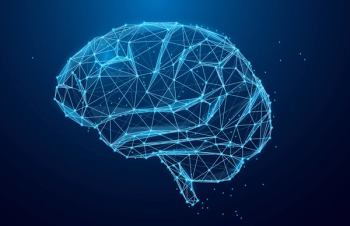
The Gut-Brain Connection: An Upcoming Study on Psilocybin-Assisted Psychotherapy and Irritable Bowel Syndrome
A phase 2A trial recently received confirmation to proceed in investigating psilocybin-assisted psychotherapy in the treatment of adult patients with IBS.
Q&A
The US Food and Drug Administration (FDA) recently gave confirmation for Tryp Therapeutics to proceed with its phase 2A trial at Massachusetts General Hospital investigating psilocybin-assisted psychotherapy in the treatment of adult patients with irritable bowel syndrome (IBS). We sat down with Tryp’s CSO, Jim Gilligan, PhD, MBIS, to learn more.
PT: Patients with IBS experience abdominal pain and other debilitating gastrointestinal (GI) symptoms. Can you speak a little about how psilocybin-assisted psychotherapy might help relieve those symptoms?
Gilligan: The primary clinical efficacy endpoint in our upcoming IBS study is abdominal pain and visceral tenderness. This type of pain can be thought of as “learned or memorized pain” whereby the pain sensation originates from a neural loop in the brain. It is also interesting to note that approximately 35% of patients with IBS also have
The current hypothesis regarding nociplastic pain, which we think could be applicable to patients with IBS, suggests there are neural networks in the brain associated with pain that are responsible for the sensation of pain and this emanate from constantly firing neural loops. An analogy to help explain this concept would be our memory of music: We hear a couple of notes and we know exactly the song and words. The notes have activated a neural loop in our memory. Often, we say we have a song “stuck in our head” when the same song keeps repeating itself. With nociplastic pain, this memorized pain signal is active and needs to be turned off.
PT: Have there been other psychopharmacological treatments to address IBS? What makes psilocybin the better option? What are the benefits of a novel approach like this?
Gilligan: To date, there have been
There are pharmacological approaches for the GI symptoms of either constipation or diarrhea, but no clinical studies have been performed to date integrating a psychedelic with psychotherapy to address abdominal pain in patients with treatment resistant IBS.
PT: Tell me a bit about the research team. Is Tryp excited to be partnering with Massachusetts General Hospital for this research?
Gilligan: Tryp is very excited to working with the Team at MGH headed up by Erin Mauney, MD, and Franklin King, MD, along with Braden Kuo, MD; Helen Murray, PhD; Vitaly Napadow, MD; Jeremy Ruskin, MD; and Fernando Espi Forcen MD, PhD.
The MGH Team brings extraordinary experience in gastroenterology, psychology, cardiology, and neurobiology to the program. We are incredibly fortunate to be working with this team of exceptional collaborators.
PT: This phase 2A trial will evaluate the effects of TRP-8802, a synthetic, oral psilocybin. However, in a recent announcement, Tryp suggested subsequent studies will utilize TRP-8803, an IV-infused psilocin. What are the benefits of an IV-infused treatment over an oral treatment?
Gilligan: Oral administration of drugs is certainly a convenient route of administration. Oral administration of psilocybin is associated with the following limitations:
- Variable blood levels achieved post-dose may lead to suboptimal efficacy and safety
- Extended time before entering the psychedelic state (1 to 2 hours)
- Prolonged duration of the psychedelic state (6 to 8 hours)
- Lack of control post-dose (not reversible)
- Burden to patient and therapist with respect to time requirements
- Inability to correlate blood levels with potential biomarkers or clinical outcomes
Psilocybin needs to be converted in the body to psilocin which is the molecule that travels to the brain and induces the psychedelic experience. Tryp has developed a proprietary IV infusion of psilocin to address the shortcomings of oral psilocybin, which we refer to as TRP-8803. TRP-8803 achieves the following:
- Targeted and more accurate drug blood levels
- Short onset time (15 to 20 minutes)
- Shorter and controlled treatment duration, determined by clinician
- Reversible
These attributes of TRP-8803 IV infused psilocin we feel also make Tryp’s approach more commercially feasible and economic. Our current strategy involves exploring the clinical utility of psychedelic assisted therapy with available oral psilocybin in unique indications such as BED, IBS, and fibromyalgia; where a meaningful signal is detected subsequent studies will be performed with TRP-8803 IV infused psilocin.
PT: Is there anything you would like mental health clinicians to know about the upcoming study?
Gilligan: We think the expansion of quality clinical studies like ours which include EEG monitoring and fMRI will help to further elucidate the mechanism of action of psychedelics and help explain the basis for their clinical benefit. The better the understanding of how psychedelics work, the more efficient studies generating more compelling data becomes. We think data is critical for acceptance of this approach and of course what is necessary for regulatory approval.
PT: When can we anticipate these results?
Gilligan: We recently announced that Tryp received from FDA the allowance to proceed letter following their review of our IND submission for IBS. The next steps will be to have ethics review followed by obtaining National and State Drug Enforcement Administration (DEA) license. Right now, the DEA approvals are the gating items. We have completed psychotherapy training and the study from an operational perspective is ready to proceed once the DEA approvals allow shipment of the clinical trial material to the site. Recent experience with the DEA from the state of Massachusetts suggests this could take several months.
PT: Thank you!
Dr Gilligan is President and CSO of Tryp Therapeutics
References
1. Shin A.
2. Riggott C, Mikocka-Walus A, Gracie DJ, Ford AC.
3. Kuntz L, Gilligan J. Psychedelics for the treatment of binge eating disorder in males. Psychiatric Times. August 29, 2022.
Newsletter
Receive trusted psychiatric news, expert analysis, and clinical insights — subscribe today to support your practice and your patients.







